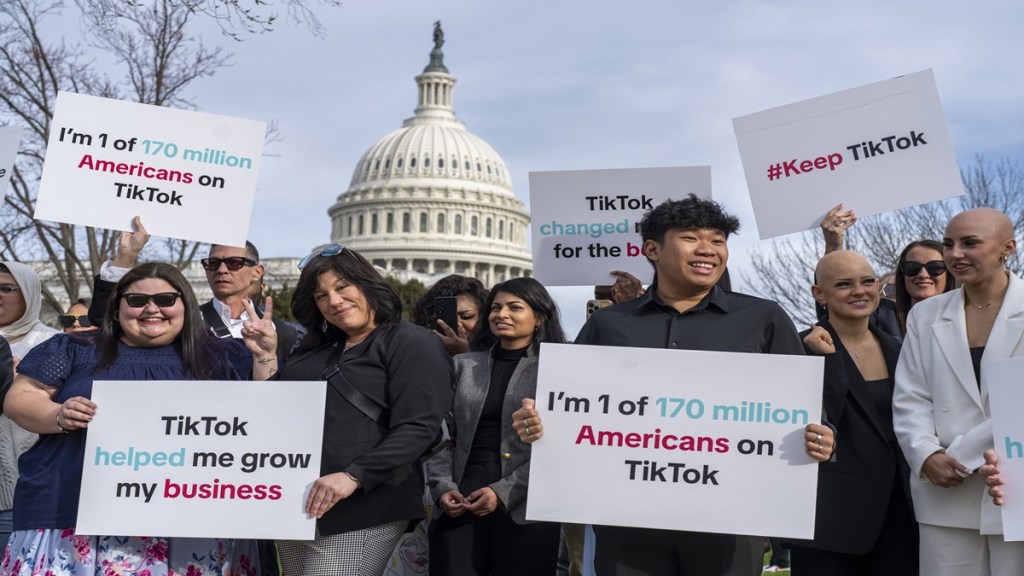The US House of Representatives took a significant step on Wednesday when it passed a bill that could potentially ban the Chinese video-sharing app TikTok in America. The proposed legislation witnessed a decisive vote of 352-65. Many raised concerns over the app’s ownership structure as a potential national security risk.
Introduction of the Bill and Concerns Raised
Lawmakers are pushing for action due to apprehensions that TikTok‘s parent company, ByteDance Ltd., based in China, could pose a threat to national security. They argue that ByteDance’s allegiance to the Chinese government raises the possibility of data access demands, putting the privacy of TikTok’s American users at risk. The bill demands ByteDance’s divestiture from TikTok, severing ties that could compromise US security.
TikTOk Debate in the House
Representative Cathy McMorris Rodgers emphasized on the gravity of the situation, offering TikTok a stark ultimatum: either disassociate from ByteDance and maintain operations in the US or align with the Chinese Communist Party (CCP) and face the repercussions.
The bill’s passage in the House is merely the initial phase of the legislative process. Its fate now rests with the Senate, where the bill’s prospects remain uncertain. Senate Majority Leader Chuck Schumer acknowledged the need for thorough deliberation, hinting at consultations with relevant committee chairs before charting the bill’s course.
Tension between US and China
This legislative move puts the spotlight on the escalating tensions between the US and China. By targeting TikTok, lawmakers addressed potential threats to national security. However, they also acknowledged the app’s immense popularity, particularly among the youth.
Reactions from TikTok and China
TikTok’s CEO, Shou Zi Chew, reassured users of the platform’s commitment to data security and independence from external influence. He warned against the bill’s potential to consolidate power among a few social media giants.
Meanwhile, China criticized the bill as a political maneuver aimed at undermining business operations, expressing concerns about its impact on investor confidence and bilateral relations.
Divisions and Opposition
Despite strong bipartisan support for the bill, dissenting voices emerged. Some Republicans cautioned against authoritarian responses, advocating for consumer choice and warning of unintended consequences. Democrats highlighted the potential adverse effects of a TikTok ban on American users and businesses, urging a cautious approach that safeguards civil liberties.
National Security Concerns vs. Free Speech
Lawmakers grappled with balancing national security concerns with the preservation of free speech online. While acknowledging TikTok’s denial of any collusion with the Chinese government, legislators underscored the imperative of proactive measures to mitigate potential risks.
Senate leaders, including Mark Warner and Marco Rubio, expressed commitment to advancing the bill through the Senate, citing shared concerns over TikTok’s national security implications. Efforts are underway to navigate constitutional considerations while protecting civil liberties.
Public Sentiment and Advocacy
TikTok influencers and users are largely against the bill as they feel that the platform has a positive impact on their lives and businesses. They decried the swift legislative process, arguing for more extensive public engagement and deliberation.
While former President Donald Trump opposed the House initiative, Vice President Mike Pence urged Senate action, labeling TikTok as Chinese spyware and advocating for its sale to non-foreign adversaries.
(With AP Inputs)


